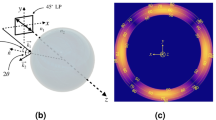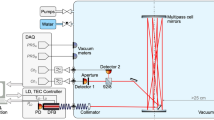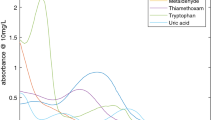Abstract
IN an article on “The Elimination of Gas Action in Experiments on Light Pressure,” read before the American Physical Society in December, 1904, and published in the Physical Review, May, the writer made the following statement:—“A thin vane of clear glass, accurately vertical and mounted radially, may be used to advantage to demonstrate light pressure. If the light has been filtered through several thicknesses of glass there will be but little absorption by the thin vane and its two surfaces will be warmed nearly equally. Consequently the radio-metric effect will be small. The reflection of the radiation at the two surfaces will make a difference of about 16 per cent. between the energy in front of and behind the vane. Hence the light pressure will be about one-sixth of that due to the same light beam falling upon a black surface. The throws for such a vane had only about a ten per cent. variation in a range of air pressures from about 10 mm. to 200 mm. of mercury.”
This is a preview of subscription content, access via your institution
Access options
Subscribe to this journal
Receive 51 print issues and online access
$199.00 per year
only $3.90 per issue
Buy this article
- Purchase on Springer Link
- Instant access to full article PDF
Prices may be subject to local taxes which are calculated during checkout
Similar content being viewed by others
References
Trans. Seismclogical Soc. of Japan, vol. iii. p. 55
Author information
Authors and Affiliations
Rights and permissions
About this article
Cite this article
HULL, G. The Pressure of Radiation on a Clear Glass Vane. Nature 72, 198–199 (1905). https://doi.org/10.1038/072198c0
Issue Date:
DOI: https://doi.org/10.1038/072198c0
Comments
By submitting a comment you agree to abide by our Terms and Community Guidelines. If you find something abusive or that does not comply with our terms or guidelines please flag it as inappropriate.



